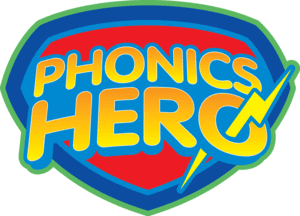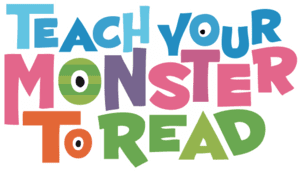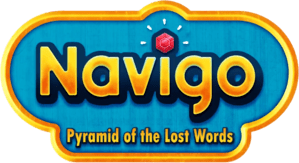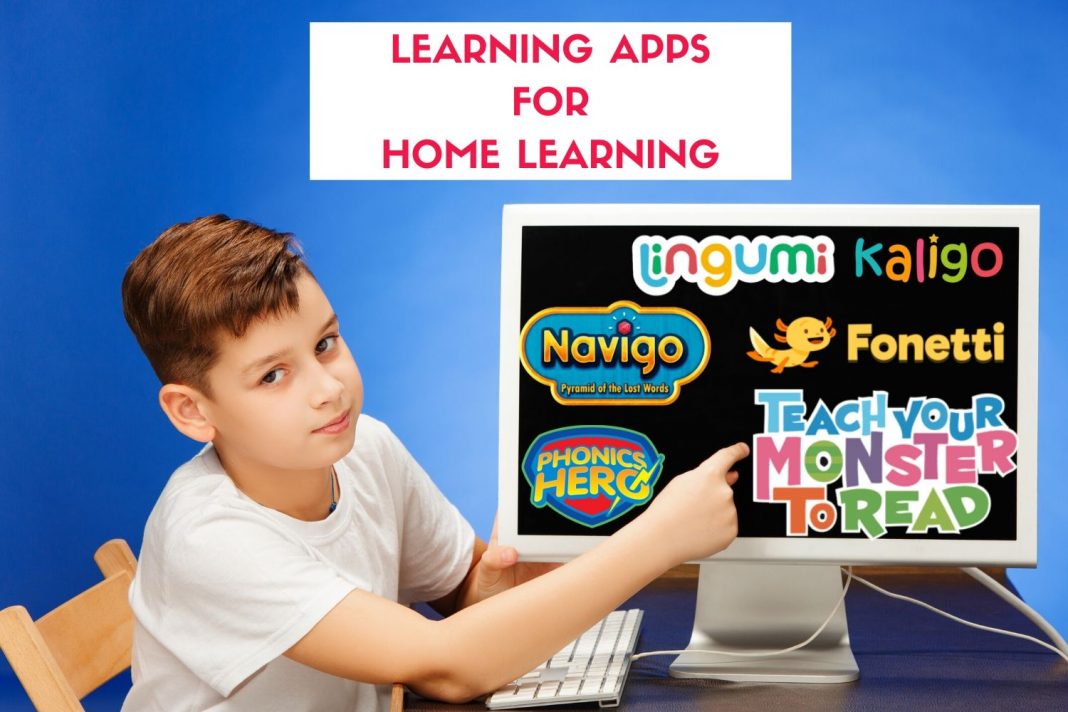In mid-2019, amidst the media glare on all things Brexit, there was a move by the UK government aimed at reaching kids from less privileged sections of society.
Research into learning development showed that children who have a learning deficiency or delay of 4 months at the age of 5 when they begin formal schooling are over one and half years behind their peers by the age of 11.
To bridge this divide, Children and Families Minister Kemi Badenoch announced in late July a competition to develop learning apps that would allow children to learn predominantly the English language faster, aimed at significantly reducing the illiteracy rate by 2028. The recommended language learning apps by the Department of Education guide parents to use high-quality educational apps that have been approved by education experts.
Benefits Of Language Learning Apps For Home Learning
With the current isolation measures in place due to the Coronavirus pandemic, these English language learning apps can also be a useful tool for any family to fill the literacy learning gap.
Learning English Through Gameplay
It is easy to make a child interested in something happening on a screen. Animations, songs and funny voices make language learning a fun activity. Such online reading games are a handy addition to traditional textbooks. However, they should not be played by young children on their own. Adults will have to provide guidance and repeat letter sounds, words or explain what to look out for, to say letter sounds out loud etc. Therefore, they shouldn’t be used to just occupy the child with something. They only achieve a learning effect through interaction. Also for e-safety reasons, an adult should supervise especially younger children of up to 10 years.
Immersive Language Learning Experience
 Conventional teaching is not always interactive. Students are expected to learn more independently the older they get. However, a big part of language learning is any form of interaction and communication and this can be done in different ways. It can be implemented by a virtual assistant making immersive early years tutoring possible at no extra cost, a nanny, tutor or babysitter that can do the online games with the child or of course the parents and teachers themselves. During the isolation period, the virtual assistant or online tutor would obviously be the ideal choice.
Conventional teaching is not always interactive. Students are expected to learn more independently the older they get. However, a big part of language learning is any form of interaction and communication and this can be done in different ways. It can be implemented by a virtual assistant making immersive early years tutoring possible at no extra cost, a nanny, tutor or babysitter that can do the online games with the child or of course the parents and teachers themselves. During the isolation period, the virtual assistant or online tutor would obviously be the ideal choice.
Individualised Pedagogy
The advantage of learning apps is that the learning itself can be perfectly tailored to suit a child’s needs and abilities. In a standardized curriculum, customization and differentiation are difficult to implement. Most learning apps assess the student’s progress and take the activity to the next level when they are ready for the challenge.
During the isolation period introduced by the UK government, many online learning apps and platforms offer free access to families. Use this time to test and trial such apps to find out which ones suit your child best.
Hungry Little Minds Certified And Recommended English Language Learning Apps
-
Lingumi (Android and iOS)
 Created by an English teacher Toby Mather, Lingumi is aimed at kids between 2-6 years old. Its objective is to tutor pre-school English enjoyably and affordably.
Created by an English teacher Toby Mather, Lingumi is aimed at kids between 2-6 years old. Its objective is to tutor pre-school English enjoyably and affordably.The app is available on both Android and iOS and offers five lessons as part of a free trial. The use of the app is limited to 10 minutes long practices daily so that there is no extensive screen time. One lesson is released every day. The app developers guarantee that in three short months, a child would learn 120 new words and be able to construct short sentences, or they will refund the subscription.
With hundreds of lessons available in the library, Lingumi aims at strengthening language, phonics and reading skills in English from a very young age. Therefore, this app is a great resource for multilingual learners or non-native English speakers.
-
Kaligo (Android and iOS)
 Typing has become part of regular communication and expressing oneself. But writing is equally, if not more important, to the learning process. There is an undeniable connection between what the hand writes and the brain processes.
Typing has become part of regular communication and expressing oneself. But writing is equally, if not more important, to the learning process. There is an undeniable connection between what the hand writes and the brain processes.The Kaligo app, which requires a tablet and stylus, teaches children how to write in an interactive and fun manner. From writing in block letters, upper and lower cases to cursive writing, it takes a unique approach to teach this essential human feat that is fast becoming endangered. According to the developers it uses stroke analysis: “a self-paced, auto-corrective approach allowing students to progress at their own speed and according to their own development”.
-
Phonics Hero (Android and iOS)
 Language education has two parts – reading and writing. The first is oral, the second is tactile. A child has to learn to pronounce correctly to comprehend any concept.
Language education has two parts – reading and writing. The first is oral, the second is tactile. A child has to learn to pronounce correctly to comprehend any concept.Language discrimination and understanding plays a huge role in the development of a child’s brain. Phonics Hero has been developed by Michael Wood, a veteran of three decades in the education sector, to tutor a child how to spell and read.
Not only can it teach how to spell but guides the student step by step with error analysis.
-
Teach Your Monster to Read (Amazon, Android, and iOS)
 A competitor of Phonics Hero, this app has the same aim – to tutor a child how to read quickly and pronounce correctly.
A competitor of Phonics Hero, this app has the same aim – to tutor a child how to read quickly and pronounce correctly.The app takes the learner on a journey to collect rewards through matching letters to sounds, blending, segmenting, reading tricky words and full sentences.
The app can tutor any child age 3 and above to learn all the letters in the alphabet, recite them from memory, and create words and sentences using them.
-
Navigo (Android)
 Navigo is a multilingual app. Developed by the iRead project, managed by London’s UCL Knowledge Lab, and aimed primarily at children in foundation stages and primary schools, it can be used by English, Spanish, Greek, and German learners.
Navigo is a multilingual app. Developed by the iRead project, managed by London’s UCL Knowledge Lab, and aimed primarily at children in foundation stages and primary schools, it can be used by English, Spanish, Greek, and German learners.The app aims at developing fluency of speech and works through an intuitive algorithm that adjusts itself to the users’ needs. According to the game designers, it provides “a gradual learning journey that starts from children (i) recognising and applying the correct linguistic rule, (ii) moving to use and combining different linguistic rules to bring together smaller units of words such as graphemes or morphemes to build a correct word (blending and segmenting) or rearrange/build meaningful sentences and (iii) ending with automating this knowledge”.
-
Fonetti (Android and iOS)
 Fonetti is a story reading app. It is the opposite of an audiobook. The app carefully listens as the child reads through lines of text and provides real-time feedback to improve the ability to vocalize.
Fonetti is a story reading app. It is the opposite of an audiobook. The app carefully listens as the child reads through lines of text and provides real-time feedback to improve the ability to vocalize.Essentially it uses speech recognition as used by Google Assistant and Siri and makes reading an interactive activity as never seen before online.
The game developer doesn’t state which age this app is appropriate for, but looking at the reading books available, they indicate that the reading skills targeted here start from the age of 7 earliest. However, parents can obviously read these books with their children together and encourage their child to read easier words and see if they turn green.
Enjoy Online Language Learning at Home With High-Quality Educational Apps
All of these apps are easy to operate and have minimum navigation layers. They are both educational and contain fun elements that make young children play and learn in one go. Moreover, all of them are safe to use and contain internal timers for limited screen time.
Find more useful learning apps for other subjects in our other guides:
Author Profile

- Editor in Chief
- Blogger and Educator by Passion | Senior Online Media & PR Strategist at ClickDo Ltd. | Contributor to many Education, Business & Lifestyle Blogs in the United Kingdom & Germany | Summer Course Student at the London School of Journalism and Course Instructor at the SeekaHost University.
Latest entries
 Directory PostsOctober 29, 20257 Not-To-Miss UK Education Conferences in 2026
Directory PostsOctober 29, 20257 Not-To-Miss UK Education Conferences in 2026 Directory PostsOctober 16, 2025The 12 Best Online Tutoring Platforms in the UK
Directory PostsOctober 16, 2025The 12 Best Online Tutoring Platforms in the UK Directory PostsOctober 6, 2025Top 12 London Private Schools – Best Independent Schools Nearby
Directory PostsOctober 6, 2025Top 12 London Private Schools – Best Independent Schools Nearby careerSeptember 10, 20258 Top Online Future Career Courses To Know
careerSeptember 10, 20258 Top Online Future Career Courses To Know







